Picture this: you’re running late for work, and as you rush out the door, you hop into your trusty Toyota Camry, ready to tackle the day ahead. But as you turn the key in the ignition, all you hear is a frustrating silence. Your heart sinks as you realize that your reliable companion has chosen this very moment to refuse to start. Don’t panic just yet! This article will walk you through the step-by-step process of diagnosing and fixing the common causes of a Toyota Camry not starting, from the battery to the alternator and everything in between. So, grab your toolkit and let’s get to work because we’re about to bring your Camry roaring back to life!
What is the Toyota Camry popular for?
The Toyota Camry has established itself as one of the most popular mid-size cars globally, renowned for its exceptional reliability, safety features, and overall value for money. Its sturdy build and comfortable ride not only make it a top choice for families but also appeal to commuters seeking a smooth driving experience. With a long-standing history and a loyal following, the Toyota Camry stands as an iconic car model that continues to dominate the market, offering unparalleled quality and performance for drivers worldwide.
Among the benefits that make the Camry a top choice for car buyers are its exceptional fuel efficiency, providing drivers with substantial savings at the pump. The spacious interior not only ensures comfort for passengers but also allows for ample storage, catering to various lifestyle needs. In addition to its impressive safety ratings, the Camry boasts advanced driver-assist features that offer peace of mind on the road. Its consistent high rankings in consumer reports and industry expert reviews speak volumes about its reputation for excellence and reliability.
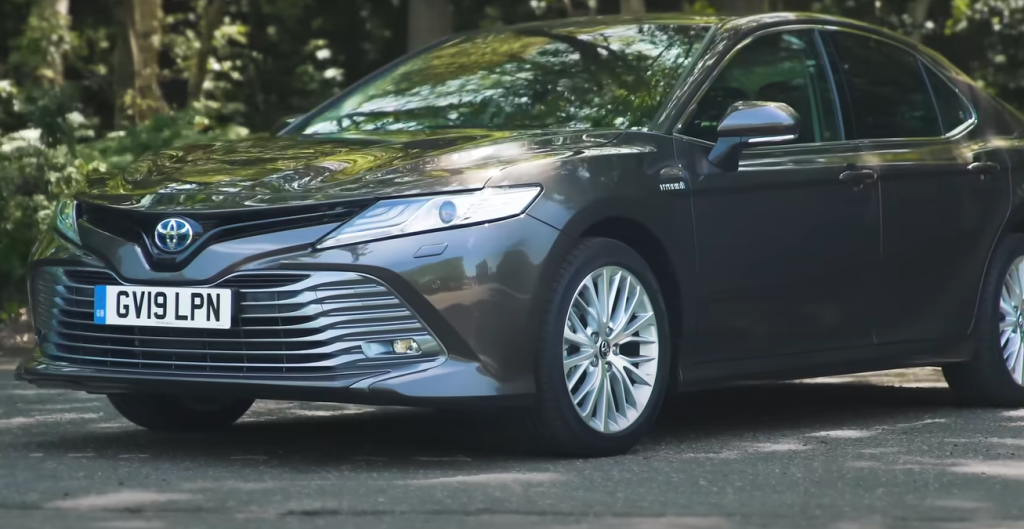
The Camry’s sleek design, coupled with an array of advanced technology features, enhances the overall driving experience. Furthermore, its affordable price point adds to its appeal, making it a practical and reliable option for individuals looking to invest in a quality vehicle that exceeds expectations in every aspect [1].
Why Won’t Your Toyota Camry Start?
Dead Battery or Defective Alternator
If your Toyota Camry refuses to start, the most probable culprit is a dead battery or a faulty alternator. A car’s battery powers all its electrical components and requires sufficient charge to start the engine. Over time, a battery may lose charge due to various reasons like age, extreme temperatures, or excessive use of electronic devices without running the engine. If your Car’s battery is dead or close to dying, you may hear a clicking sound when you turn the key in the ignition.
On the other hand, a faulty alternator may cause your Camry not to start due to insufficient power supply. The alternator charges the battery while the engine is running and powers all electrical systems in the car. If your alternator is defective, there won’t be enough power to start the engine, and you may notice dimming headlights or warning lights on the dashboard.

To determine whether it’s a battery or alternator issue, try jump-starting your Camry using jumper cables or a portable jump starter. If the vehicle starts after jumping, then your alternator is most likely the problem. Otherwise, if it doesn’t start, the battery is likely dead and needs replacement.
Faulty Ignition Switch
Another common reason for a Toyota Camry not starting is a faulty ignition switch. The ignition switch is responsible for powering the starter motor, which in turn initiates the engine’s combustion process. So, if your Camry is not starting despite having a sufficient battery charge, it might be due to a malfunctioning ignition switch. Signs of a faulty ignition switch may include difficulty turning the key in the ignition or no response from the engine when attempting to start it.
You can check for a faulty ignition switch by testing the starter motor with a multimeter to see if it’s receiving power. If there is no power, then it is likely that your ignition switch may require replacement. This is an important aspect to consider for the smooth functioning of your Toyota Camry.
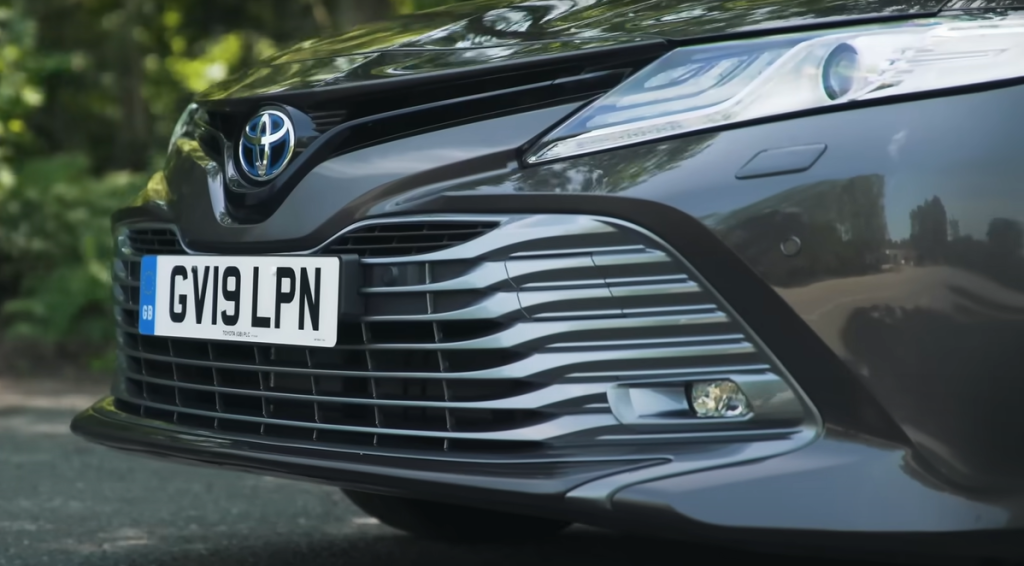
Clogged Fuel Filter or Bad Fuel Pump
A clogged fuel filter or a malfunctioning fuel pump can also prevent your Toyota Camry from starting. The fuel filter’s role is to remove impurities from the gasoline before it reaches the engine, ensuring that only clean fuel enters the combustion chamber. Over time, due to the accumulation of debris and contaminants, the filter can become clogged, impeding the smooth flow of fuel. On the other hand, a malfunctioning fuel pump fails to deliver an adequate fuel supply to the engine, resulting in difficulty starting the vehicle.
If you suspect a clogged fuel filter or a faulty fuel pump, you can attempt to start your Camry after adding a high-quality fuel injector cleaner to the gas tank. This cleaner can help dissolve deposits and improve fuel system performance. However, if the issue persists, it’s advisable to seek professional assistance from a mechanic for a thorough diagnosis and potential replacement of these components to ensure optimal vehicle performance and reliability.
Faulty Starter Motor
The starter motor, a critical component in the ignition process, is responsible for initiating the engine’s combustion by turning the crankshaft. A malfunctioning starter motor can lead to frustrating issues with starting your Camry, causing delays and potential safety concerns. Indications of a faulty starter motor may manifest as a grinding noise or a lack of response from the engine during ignition attempts, leading to added stress for the driver.
To assess the condition of your starter motor, you can perform a simple diagnostic test by tapping on it with a hammer while someone else attempts to start the car, allowing for a more comprehensive evaluation of its functionality. If the car starts under these conditions, it may be indicative of a need for starter motor replacement, ensuring the continued reliability and performance of your vehicle.
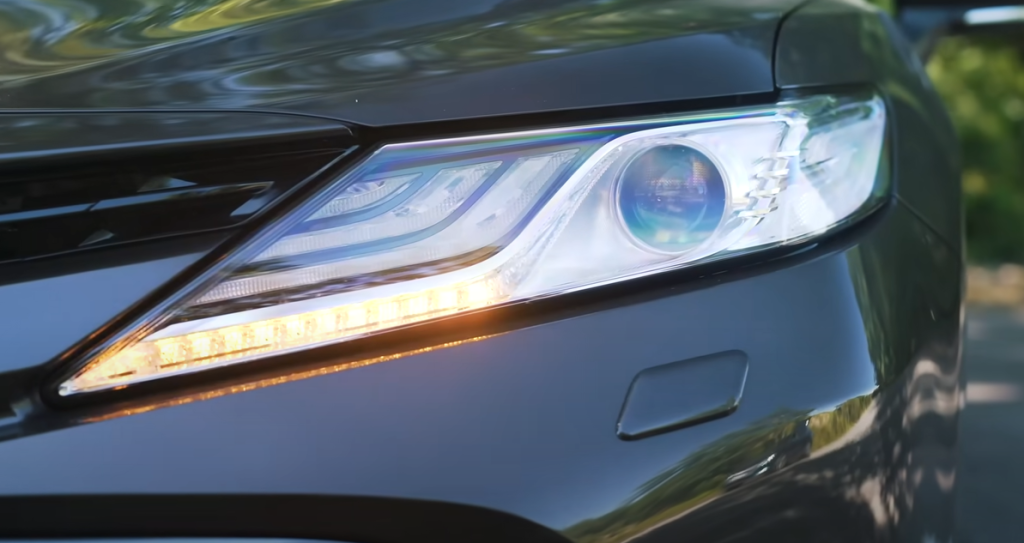
Failing Spark Plugs or Ignition Coils
Spark plugs are a vital component in the combustion process, as they generate sparks to ignite the fuel and air mixture in the engine. As time passes, spark plugs may wear out, leading to difficulties in starting the car or even preventing it from starting altogether. Similarly, faulty ignition coils can also result in starting issues in your Camry. These coils are responsible for converting the battery’s low voltage into the high voltage required to generate sparks in the spark plugs.
If you suspect that your spark plugs or ignition coils may be failing, it’s important to have them promptly inspected and replaced by a trusted mechanic. Ignoring these issues could lead to more serious problems down the road.
Empty Gas Tank
While it may seem obvious, one of the most common reasons for a car not starting is running out of gas. This can happen when the fuel gauge is not always accurate, leading you to mistakenly assume there is enough gas left in the tank to start the engine. If this happens, try adding more gasoline and then attempting to start your Camry again. It’s important to pay attention to your car’s fuel levels and consider refueling before the gauge reaches low levels to avoid this situation [2].
Why is it important to keep your Toyota Camry well-maintained?
Like any other car, regular maintenance is crucial for keeping your Toyota Camry running smoothly and avoiding potential problems. Neglecting routine upkeep can lead to more significant issues that can be costly to repair and disrupt your daily routine. A well-maintained Camry is also more fuel-efficient, ensuring that you get the most out of every gallon of gas. Additionally, keeping up with maintenance can help prolong your vehicle’s lifespan and ultimately save you money in the long run.
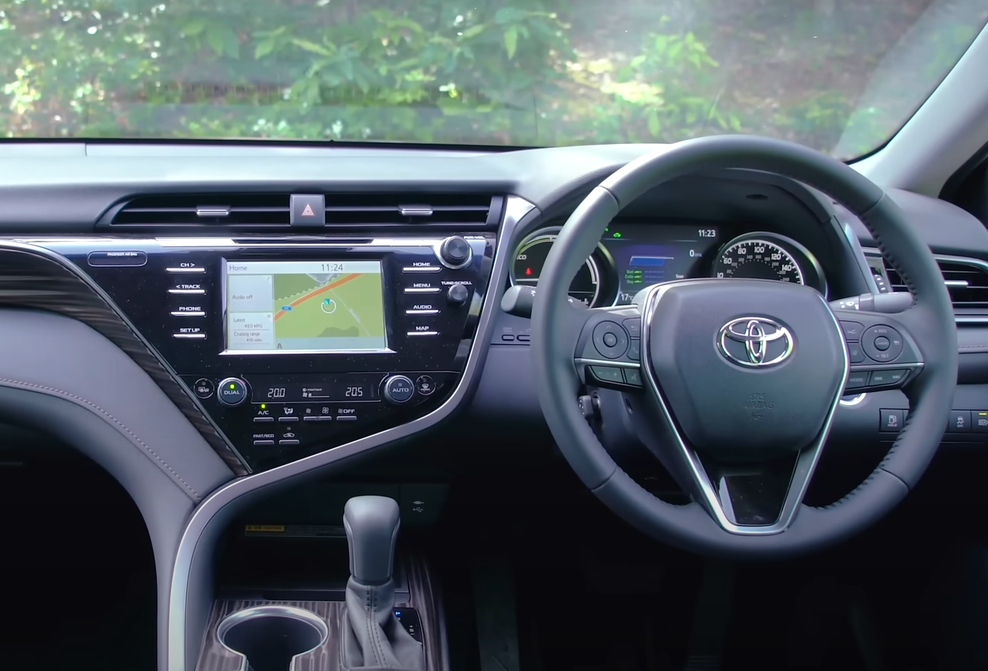
Here are some essential maintenance tasks to keep your Camry running at its best:
- Regular oil changes
- Tire rotation and pressure checks
- Brake inspections and replacements
- Fluid checks and replacements (such as coolant, transmission fluid, and brake fluid)
- Changing air filters
- Inspecting and replacing spark plugs
By following your Camry’s maintenance schedule and addressing any issues promptly, you can ensure that your car stays in top condition for years to come. Regular maintenance also allows for early detection of potential problems, giving you the opportunity to address them before they become more significant and potentially costly issues.
So, make sure to prioritize keeping your Toyota Camry well-maintained for a reliable and efficient driving experience. Overall, taking care of your car can save you time and money while also ensuring your safety on the road. So, don’t neglect regular maintenance – it’s an essential part of being a responsible car owner.
Here are some additional tips for maintaining your Toyota Camry:
- Keep the exterior and interior of your car clean to prevent dirt and grime buildup, which can cause damage over time.
- Check and replace windshield wipers regularly, especially before winter when they may be needed more frequently.
- Pay attention to any unusual noises, smells, or changes in performance and have them promptly inspected by a mechanic.
- Keep track of your Car’s maintenance history to ensure you stay on top of necessary tasks and repairs.
By following these tips and staying proactive about maintenance, you can enjoy a reliable and efficient driving experience with your Toyota Camry for years to come. So, don’t wait – start taking care of your car now! Your wallet and your peace of mind will thank you.
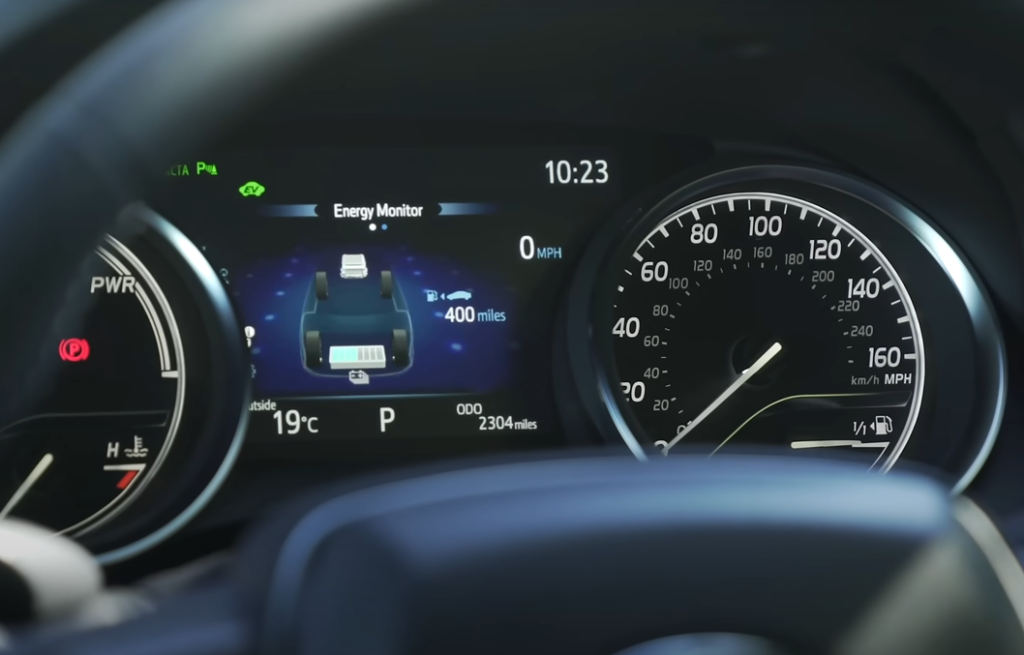
How to clean a car properly?
Cleaning your car regularly not only helps keep it looking good but also prevents dirt and grime from causing damage to the paint and other surfaces. Here are some steps to follow for a proper car wash:
- To start, thoroughly rinse off any loose debris, such as leaves or twigs, using a hose or pressure washer to ensure a clean surface for washing.
- Next, take a soft sponge or microfiber cloth and apply a car-specific cleaning solution to gently scrub the entire exterior of your car. Begin at the top and work your way down, ensuring a thorough and careful cleaning process.
- After scrubbing, rinse off all soap suds using a hose or pressure washer to leave the car’s exterior spotless and clean.
- Once rinsed, dry off the exterior using a clean microfiber cloth or chamois to prevent water spots and leave a polished finish.
- Moving on to the wheels,use a separate sponge or cloth along with an appropriate wheel cleaner to ensure they are thoroughly cleaned and looking their best.
- When it comes to interior cleaning, start by removing any trash and clutter from the car to create a clean and organized space.
- Proceed to use an appropriate cleaner for your seats, dashboard, and other interior surfaces, ensuring they are wiped down thoroughly using a cloth or brush for a pristine finish.
- Take the time to vacuum the carpets and floor mats, ensuring that all dirt and debris are effectively removed from the interior of the car.
- Don’t overlook the windows – use a high-quality glass cleaner and a microfiber cloth for a streak-free finish that enhances visibility and overall appearance.
- Finally, for added protection and a lasting shine, consider applying a wax or sealant to the exterior of your car after the thorough washing and drying process. This extra step will help maintain the car’s appearance and protect it from environmental elements.
By following these steps and using proper cleaning products, you can keep your car looking its best and prolong its lifespan. Don’t forget to clean your car regularly, especially after long trips or during harsh weather conditions. And remember, a clean car is not just about appearance – it’s also essential for maintaining its value and performance [3].
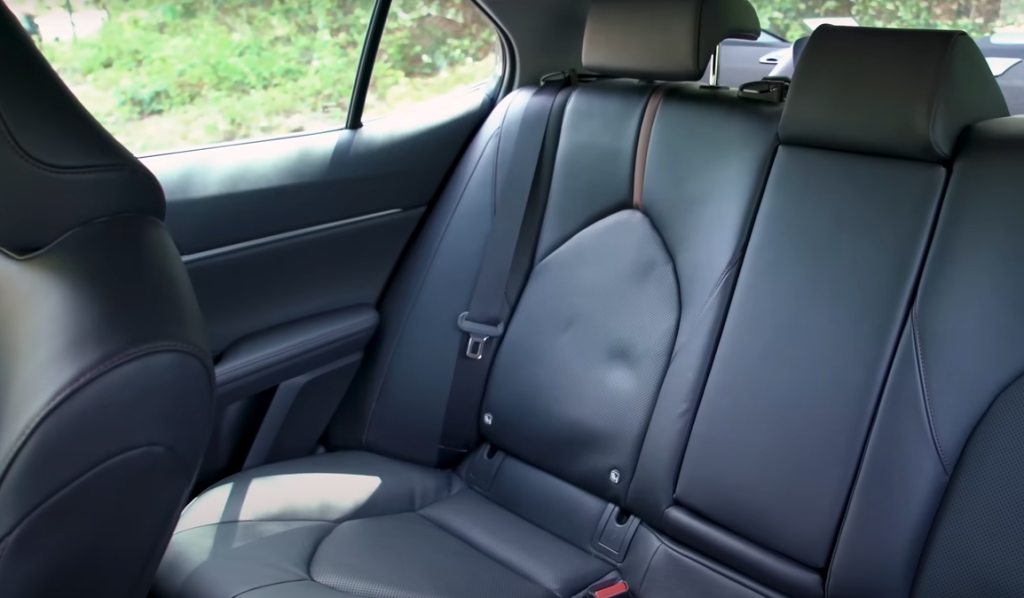
FAQ
What to do if Toyota Camry won’t start?
If your Toyota Camry won’t start, there could be several reasons why. Here are some steps you can take to troubleshoot the issue:
- Check the battery: If the engine doesn’t turn over at all or makes a clicking sound, it may indicate a dead battery. Try jumping your car with jumper cables or replacing the battery if necessary.
- Check for fuel: Make sure your car has enough gas in the tank. If it’s low or empty, fill it up to see if that resolves the issue.
- Inspect spark plugs: Worn or dirty spark plugs can cause starting issues. Check and replace them if necessary.
- Check for a faulty starter: The starter is responsible for turning the engine over, so if it malfunctions, your car won’t start. Have a mechanic check it and replace it if needed.
If none of these solutions work, it’s best to take your Toyota Camry to a certified mechanic for a thorough inspection and repair. Some other potential causes for starting issues could be a faulty ignition switch or starter motor relay, which may require professional attention. By addressing the issue promptly, you can avoid getting stranded and keep your car running smoothly.
How often should I change the oil in my Toyota Camry?
According to Toyota’s recommended maintenance schedule, the oil should be changed every 5,000 miles or every 6 months, whichever comes first. However, this may vary depending on your driving habits and the type of oil you use. For example, if you frequently drive in extreme temperatures or engage in heavy hauling or towing, it is recommended to change the oil more frequently. Also, using synthetic oil can extend the time between oil changes as it lasts longer than conventional motor oil. Refer to your Toyota Camry’s owner’s manual for specific guidelines on oil change frequency based on your individual driving habits and conditions.
Proper and timely oil changes are crucial for maintaining the engine’s health and performance, so make sure not to neglect this essential maintenance task. It is also recommended to use high-quality oil and follow other manufacturer-recommended service intervals for optimal performance and longevity of your Toyota Camry. And remember, regular oil changes not only benefit your car but also help you save money in the long run by preventing costly engine repairs.
What is the recommended tire pressure for a Toyota Camry?
The recommended tire pressure for a Toyota Camry is typically between 30-35 PSI (pounds per square inch), depending on the model and tire size. It’s important to check your car’s tire pressure regularly, especially before long trips or during sudden changes in temperature, as under-inflated or over-inflated tires can affect the car’s handling and fuel efficiency. You can find the recommended tire pressure for your specific Toyota Camry model in the owner’s manual or on a sticker located inside the driver’s side door jamb. Make sure to use a reliable tire pressure gauge and adjust the pressure accordingly if it falls below or above the recommended range. By maintaining proper tire pressure, you can also prolong the life of your tires and ensure safe driving conditions.
What is the towing capacity for a Toyota Camry?
The towing capacity for a Toyota Camry varies depending on the model and configuration. The standard towing capacity for most models is around 1,000 to 1,500 pounds. However, some newer models can tow up to 3,500 pounds when properly equipped with a towing package. It’s essential to consult your owner’s manual or speak to a certified Toyota dealership for more specific information regarding your car’s towing capacity. Keep in mind that exceeding the recommended towing capacity can put excessive strain on your vehicle and result in potential damage or accidents. So, make sure to stay within the manufacturer’s guidelines for safe and reliable towing with your Toyota Camry.
Why is my Toyota turning on but not starting?
If your Toyota turns on but doesn’t start, it could be due to various reasons. Here are some common causes and solutions to this issue:
- Faulty starter: The most likely culprit is a faulty starter, which may need to be replaced.
- Dead battery: If the engine doesn’t turn over at all or makes a clicking sound when attempting to start, it may indicate a dead battery. Try jumping the car with jumper cables or replace the battery if necessary.
- Clogged fuel filter: A clogged fuel filter can prevent your car from starting. Have it inspected and replaced if needed.
- Ignition system issues: Problems with the ignition switch, starter motor relay, or spark plugs can also cause starting problems. Have them checked and replaced if necessary.
If none of these solutions work, it’s best to take your Toyota to a certified mechanic for a proper diagnosis and repair. Regular maintenance can also help prevent starting issues, so make sure to follow the recommended service intervals for your car. In addition, always be aware of any warning signs or unusual symptoms and address them promptly to avoid getting stranded and keep your Toyota running smoothly. So, if you’re experiencing starting problems with your car, don’t ignore them and take necessary actions to ensure safe and reliable driving.
How do you start a Camry engine?
Starting a Toyota Camry engine is a simple process that can be done in just a few steps:
- Make sure the car is in park or neutral: Before starting the engine, make sure your car is in the park position (for automatic transmission) or neutral (for manual transmission).
- Press and hold down the brake pedal: This step ensures safety and prevents the car from moving while starting.
- Insert the key into the ignition: Locate the ignition switch in your Camry and insert the key fully into it.
- Turn the key to start position: While still holding down the brake pedal, turn the key to start position until you hear the engine rev up. Release the key once the engine has started.
- Check dashboard for any warning lights: After starting, make sure all the warning lights on the dashboard turn off except for those that are supposed to stay on.
If the engine doesn’t start or turns off immediately after starting, refer to the previous section for possible causes and solutions. And remember to always follow proper safety guidelines and manufacturer’s instructions when starting your Toyota Camry engine. With proper maintenance and care, you can ensure smooth and hassle-free starting every time. So, keep your car in good condition and enjoy a reliable driving experience with your Toyota Camry.
What are the causes of hard starting in Toyota Camry?
Hard starting refers to difficulty in starting the engine, which can be frustrating and inconvenient for car owners. Here are some common causes of hard starting in Toyota Camry:
- Low battery: If the battery is low or dying, it may not have enough power to start the engine.
- Faulty starter: Similar to not starting at all, a faulty starter can also cause hard starting.
- Clogged fuel filter: A clogged fuel filter can restrict the flow of gasoline to the engine, making it difficult to start.
- Dirty spark plugs: Worn or dirty spark plugs can also affect the ignition process and cause hard starting.
If you’re experiencing this issue with your Toyota Camry, it’s best to have a certified mechanic diagnose the problem and make necessary repairs. Regular maintenance and timely replacements of worn parts can also prevent hard starting in the future. Additionally, following proper storage guidelines during extreme weather conditions can help avoid potential starting issues. Remember to always address any warning signs or unusual symptoms to keep your Toyota Camry running smoothly and reliably.
Conclusion Paragraph
Overall, Toyota Camry is a car of high quality and comfort, however, it can have some common issues like any other vehicle. By following proper maintenance and care guidelines, you can prevent these issues from occurring and ensure safe and reliable driving experience with your Toyota Camry. Make sure to regularly check tire pressure, follow towing capacity guidelines, address starting problems promptly, and service your car at recommended intervals. With these practices, you can extend the lifespan of your Camry and enjoy its exceptional performance for years to come. So, be a responsible car owner and take good care of your Toyota Camry for a worry-free driving experience.
Push Button start on Camry will not work fix. (Other than foot not on the brake.)
References
- https://www.lacitycars.com/blog/what-is-good-about-toyota-camry/
- https://www.motorbiscuit.com/toyota-camry-start/
- https://www.realsimple.com/home-organizing/cleaning/home-car-wash

